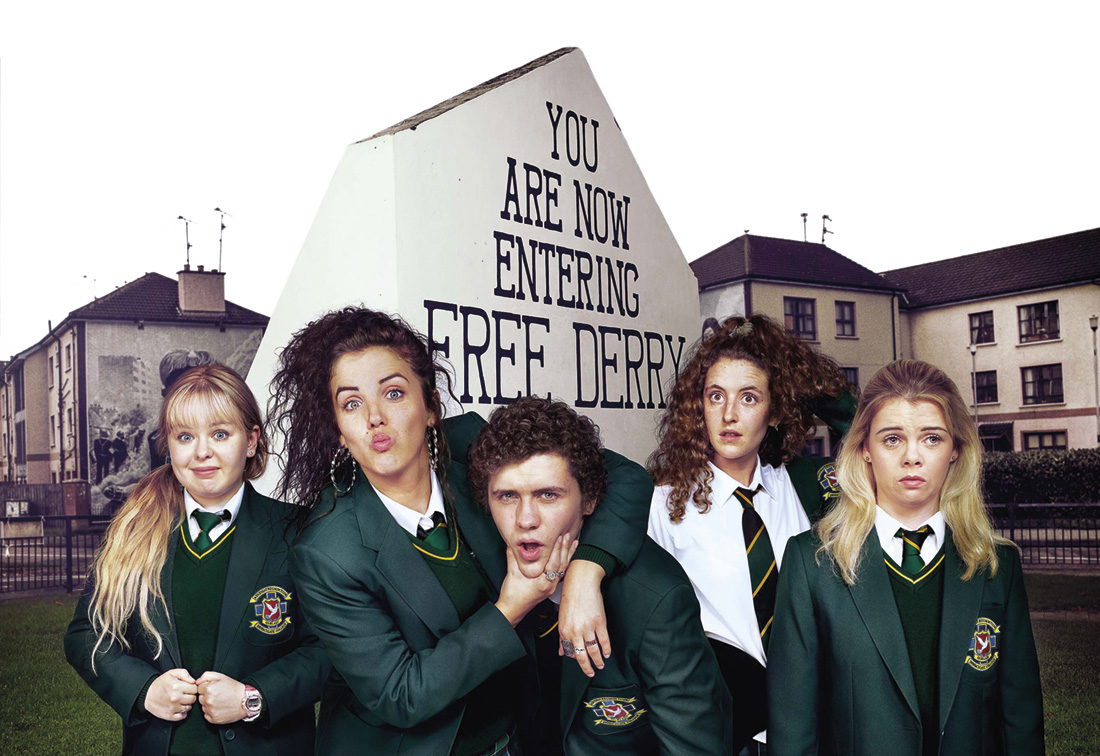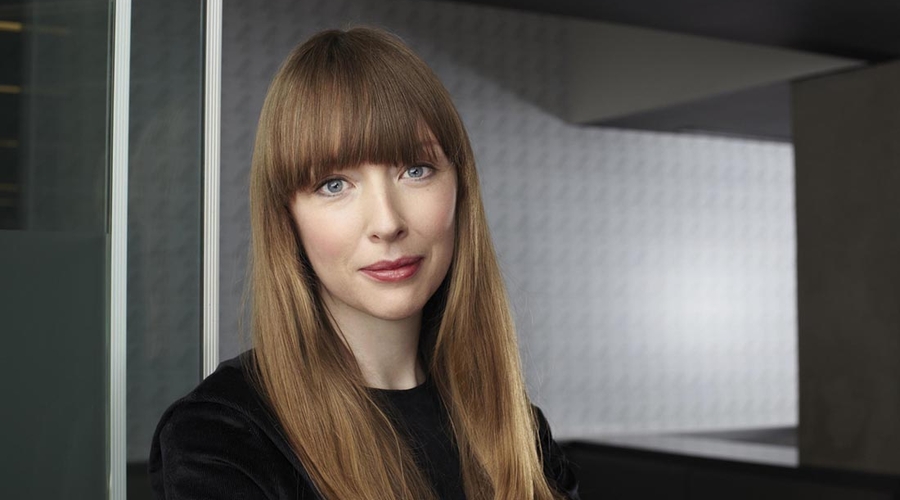Fiona McDermott, C4’s head of comedy, tells Pippa Shawley that she is determined to build on the success of Derry Girls
There are times when you sit back and go, “Oh, this is one of the best jobs in the world – how did I get it?” enthuses Fiona McDermott, Channel 4’s head of comedy. During her 18 months in the job, the channel has undergone dramatic changes, with the departure of David Abraham and Jay Hunt and the arrival of Alex Mahon and Ian Katz.
Katz landed at the channel the same week that Derry Girls launched to become Channel 4’s biggest comedy opening since 2004, and the most-watched TV series in Northern Ireland since records began.
It’s a rare thing for a sitcom to become an overnight sensation.
“It’s not for everyone to work in a genre like this,” says McDermott, who spent six years at the channel in comedy commissioning before being promoted to her current post. “Comedy takes a really long time and it’s such a team effort.”
Shows can take years to develop from an idea into a full series. Jamie Demetriou’s recent Stath Lets Flats took more than three. Even then, the work isn’t over. “It’s much quoted here, but The Inbetweeners’ three-series model was extraordinary,” the comedy boss explains. “Series 1 was fine, series 2 went up a bit and then series 3 was an explosion.” The Inbetweeners Movie went on to break box-office records when it was released in 2011, becoming the UK’s most successful comedy film of all time.
“The biggest part of this job is having the strength to back things that you believe in,” admits McDermott.
Unlike her colleagues working in news and factual programmes, success means redefining what makes a hit: “Overnights matter, of course, they do. Critical response matters. Public response matters. But I think that, in comedy, you can take a broader view on it sometimes, and your heart has to lead you on a bit.”
Confidence in the whole team is essential, she continues. “From start to finish, you have to back your judgement, you have to back your producers… good writers… and have the stamina to see it through, even when they might not do amazingly in the overnights.”
The comedy chief is on the hunt for shows that will become part of a cultural legacy. Growing up watching Channel 4 comedies that included Da Ali G Show, Green Wing and Black Books, McDermott is aware of the enduring influence of comedy, and how it can grow over time.
“When you were that age – late teens or whatever – it was bloody cool to watch Channel 4 comedy”
As Channel 4’s new director of programmes, Katz vowed to put comedy back at the network’s heart. In May, he announced a £10m investment in scripted comedy and comedy entertainment, aimed at making Channel 4 “the unequivocal home of youthful, original, British comedy”.
McDermott says the financial “shot in the arm” will help the channel to reach younger audiences at a time when they are spoilt for choice.
“Channel 4 was just where you went for that slightly alternative take, and you found voices you hadn’t heard anywhere else,” she recalls of the channel’s comedy heyday. “When you were that age – late teens or whatever – it was bloody cool to watch Channel 4 comedy.”

While the increasing number of rivals on the scene means that more people have been able to get their big break, it also means greater competition for talent. The challenge for Channel 4’s comedy team is to find and support new writers and performers.
“We have to [support] new talent because that’s how we’re going to bring out new stars who will, hopefully, feel kindred and local to the channel,” says McDermott. “We also have our eye on those bigger names that will draw in a bit more of the commercial stuff, maybe by allowing slightly bigger names to do what they wouldn’t normally do.”
She points to Sacha Baron Cohen, whose Channel 4 series Da Ali G Show propelled him to international fame in 2000. Eighteen years on, Baron Cohen has been back on the channel this summer with Who Is America?
“There’s no one who does what he does,” says McDermott. “The balls on that man are off the scale. It was a real reminder [that] Channel 4 is a supporter of that, and that’s fantastic.”
McDermott says it’s “gorgeous” to work with established talent such as Simon Blackwell on Back, Stephen Mangan on Hang Ups and Sharon Horgan and Rob Delaney on Catastrophe.
“The best comedies feel comfortable after a time… but you can’t be too comfortable from the out, otherwise it’s soft and it’s mild and you feel like you’ve seen it before”
“Sharon and Rob writing Catastrophe is maybe one of the most beautiful bits of chemistry I’ve ever witnessed,” she believes. “It continually dazzles me that they get freshness out of that relationship, and that is because the characters are so finely honed.”
She advises writers that she is “always looking for a character that I’ve not seen before”. That doesn’t mean pitching outlandish scenarios that no one will identify with. “It’s just about that dial being turned up just a little bit.” Comedies need to be brave and to take risks, even if that means telling stories that initially might seem shocking.
“The best comedies feel comfortable after a time… but you can’t be too comfortable from the out, otherwise it’s soft and it’s mild and you feel like you’ve seen it before.”
Lisa McGee’s idea for Derry Girls was one such story that turned up the dial of a school-based sitcom, set against the backdrop of the Troubles in Northern Ireland. From the stern school headmistress Sister Michael, to whimsical cousin Orla, the characters in the series are recognisable to most viewers, albeit perhaps not in a context of police checkpoints, bomb scares and peace murals.
The show’s success in Northern Ireland is a huge source of pride for the comedy boss. But it also served as a wake-up call, demonstrating the kind of programmes that public service broadcasters should be making: “It resonated with the community in Northern Ireland and you realise, ‘God, they were so underserved!’” The second series of the 1990s-based comedy begins filming later this year.
Other shows in the pipeline include: Matt Berry’s Year of the Rabbit (imagine The Sweeney set in Victorian England); Happy AF (still just a working title) written and starring Aisling Bea (with Sharon Horgan playing her sister); and Rufus Jones’s Home, which follows the experiences of Sami, a Syrian refugee who enters Britain illegally to claim asylum.
While it’s hard to predict the next Peep Show-level hit, McDermott believes that there are series in the schedule with the potential to have a lasting place on the cultural landscape.
“We’ll only be making more comedy,” she says of future plans. “We’ll only be taking more risks and breaking more new talent in the coming years and, hopefully, finding a young audience with it, who’ll grow up in the same way I did… with comedy that makes you feel part of something.”







